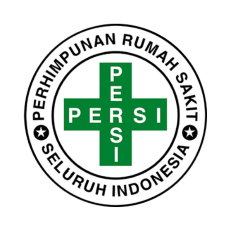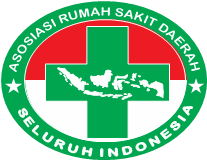Abstract
The Primary Health Facility (FKTP) in the era of National Health Insurance (JKN) must behave effective and efficiently in serving patients. Referring patients as indicated is an effort to achieve this. The research shows that optimizing primary services has the potential to save on health costs from the Social Security Agency of Health (BPJS) source of 49.1 billion per year. BPJS data also shows the high number of referrals for non- specialist cases, namely 714 thousand cases during 2014-2017. This study aims to find out the factors that are related to the high number of non-specialist cases referral by FKTP in the JKN era. The PRISMA protocol (Preferred Reporting Items for Systematic Reviews & Meta-Analyses) is used to select articles in this study. This study aims to determine the factors associated with the high number of non-specialist case referrals by Higher Level Health Facilities (FKTPs) in the JKN era. It applied The Preferred Reporting Items for Systematic Reviews & Meta-Analyses (PRISMA) protocol to select articles for this study. The article search was conducted on Google Scholar from 2 – 6 December 2019, and five eligible articles were found in this study. The findings of this review study show that factors related to non-specialty referral cases include health workers, supporting facilities, administration and regulation, service management, FKTP location and distance to FKTL, and disease complications. Comprehensive handling and collaboration of various parties and relevant stakeholders are needed to reduce the referral rate for non-specialist cases.
Bahasa Abstract
Fasilitas Kesehatan Tingkat Pertama (FKTP) di era Jaminan Kesehatan Nasional (JKN) haruslah berperilaku efektif efisien dalam melayani pasien. Merujuk pasien sesuai indikasi merupakan salah satu upaya untuk mencapai hal tersebut. Dari sebuah penelitian diketahui pengoptimalan layanan primer berpotensi menghemat biaya kesehatan bersumber Badan Penyelenggara Jaminan Sosial (BPJS) Kesehatan sebesar 49,1 milyar rupiah per tahun. Data BPJS juga menunjukkan tingginya rujukan kasus non spesialistik yakni 714 ribu kasus sepanjang 2014 – 2017. Adapun studi ini bertujuan untuk mengetahui faktor – faktor yang berhubungan dengan tingginya rujukan kasus non spesialistik oleh FKTP di era JKN. Protokol Preferred Reporting Items for Systematic Reviews & Meta-Analyses (PRISMA) digunakan untuk menyeleksi artikel dalam penelitian ini. Pencarian artikel dilakukan di Google Cendekia mulai 2 – 6 Desember 2019 dan didapatkan lima artikel yang layak dalam studi ini. Temuan studi reviu ini menunjukkan faktor – faktor yang berhubungan dengan kasus rujukan non spesialistik dapat dikategorikan menjadi tenaga kesehatan, sarana penunjang, administrasi dan regulasi, manajemen pelayanan, lokasi FKTP dan jarak ke Fasilitas Kesehatan Rujukan Tingkat Lanjut (FKRTL), dan komplikasi penyakit. Diperlukan penanganan yang komprehensif dan kerjasama berbagai pihak dan stakeholder terkait untuk menurunkan angka rujukan kasus non spesialistik.
Recommended Citation
Semarajana, I Nyoman Gede; Suwedia, I Nyoman Gede Bayu Wiratama; Daruki, Maria Wahyu; and Damayanti, Anak Agung Sri Stuti
(2022)
"FAKTOR-FAKTOR YANG BERHUBUNGAN DENGAN TINGGINYA RUJUKAN KASUS NON SPESIALISTIK OLEH FASILITAS KESEHATAN TINGKAT PERTAMA DI ERA JAMINAN KESEHATAN NASIONAL: SYSTEMATIC REVIEW,"
Jurnal ARSI : Administrasi Rumah Sakit Indonesia: Vol. 8:
No.
3, Article 1.
DOI: 10.7454/arsi.v8i3.3486
Available at:
https://scholarhub.ui.ac.id/arsi/vol8/iss3/1







